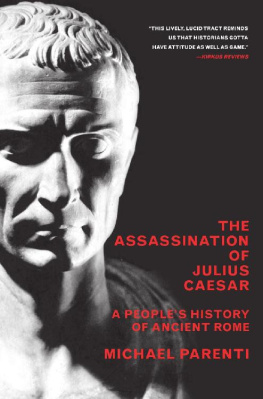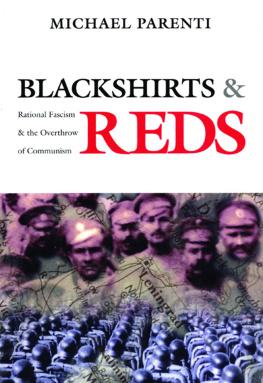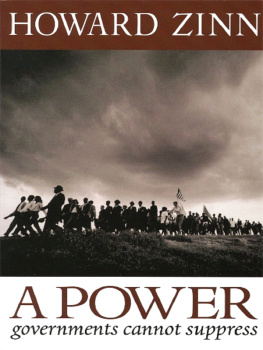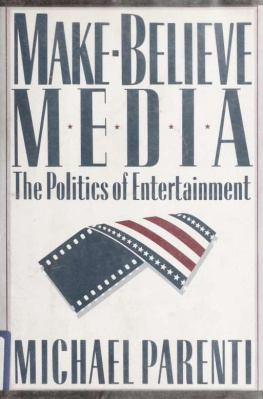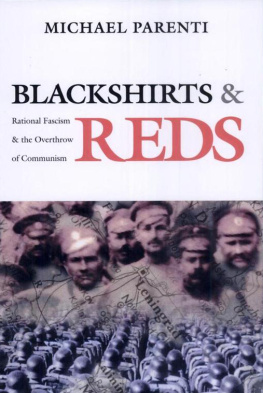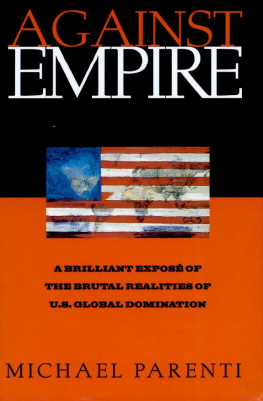BOOKS BY MICHAEL PARENTI
America Besieged (1998)
Blackshirts and Reds: Rational Fascism and the Overthrow of Communism (1997)
Dirty Truths (1996)
Against Empire (1995)
Democracy for the Few (1974, 1977, 1980, 1983, 1988, 1995)
Land of Idols: Political Mythology in America (1994)
Inventing Reality: The Politics of News Media (1986, 1993)
Make-Believe Media: The Politics of Entertainment (1992)
The Sword and the Dollar (1989)
Power and the Powerless (1978)
Ethnic and Political Attitudes (1975)
Trends and Tragedies in American Foreign Policy (1971)
The Anti-Communist Impulse (1969)
HISTORY AS MYSTERY
MICHAEL PARENTI

CITY LIGHTS BOOKS
SAN FRANCISCO
Copyright 1999 by Michael Parenti
All Rights Reserved
10 9 8 7 6 5 4 3 2
Cover design: John Miller, Big Fish
Book design: Nancy J. Peters
Typography: Harvest Graphics
Library of Congress Cataloging-in-Publication Data
Parenti, Michael, 1933
History as mystery / by Michael Parenti.
p. cm.
Includes bibliographical references.
ISBN 0-87286-357-3 (pbk.). ISBN 0-87286-364-6 (cloth)
1. Historiography. 2. HistoryErrors, inventions, etc.
I. Title.
D13.P35 1999
City Lights Books are available to bookstores through our primary distributor: Subterranean Company, P.O. Box 160, 265 S. 5th St., Monroe, OR 97456. 541-847-5274. Toll-free orders 800-274-7826. FAX 541-847-6018. Our books are also available through library jobbers and regional distributors. For personal orders and catalogs, please write to City Lights Books, 261 Columbus Avenue, San Francisco, CA 94133.
Visit our web site: www.citylights.com
CITY LIGHTS BOOKS are edited by Lawrence Ferlinghetti and Nancy J. Peters and published at the City Lights Bookstore, 261 Columbus Avenue, San Francisco, CA 94133.
ACKNOWLEDGMENTS
Gary Aguilar, Charles Briody, Lauren Coodley, Charlotte Dennett, Elazar Friedman, Leonard Pitt, Sally Soriano, Vincent Sauv, and my son Christian Parenti furnished me with pertinent materials, as did the reference staff at the Berkeley (California) Public Library.
Peggy Karp critiqued the manuscript and also provided valuable research assistance for chapter six. Nancy J. Peters also did a critical reading of these pages. And Beth Garber and Holly Earl rendered additional valuable service. June Felter took the photograph of me that appears on the book cover (as part of her Men In Hats series). I owe all these fine people an expression of gratitude.
To the memory of Judi Bari
Quia induit me vestimentis salutis
et indumento justitiae circumdedit me
For he has adorned me in salvation
And wrapped me in a mantle of Justice
In my own country
amnesia is the norm,
the schools teach us
to unremember from birth,
the slave taking, the risings up,
the songs of resistance,
the first May first,
our martyrs from Haymarket
to Attica to the redwoods of California
ripped whole from our hearts,
erased from official memory...
John Ross, Against Amnesia
PROLOGUE:AGAINST THE MAINSTREAM
T he writing of history, Voltaire believed, should be one form of battle in the age-old war for our intellectual emancipation. Too often, however, history is written and marketed in such a way as to be anything but liberating. The effect is not to enlighten but to enforce the existing political orthodoxy. Those who control the present take great pains to control our understanding of the past. What J. H. Plum calls the acquisition of the past by ruling and possessing classes and the exclusion of working people is a widespread phenomenon through recorded time. Little room is left for an honest picture of how the common people of history have struggled for a better life, or how politico-economic elites have ruthlessly pursued a contrary course, doing whatever necessary to maintain and expand their wealth and privileges.
Much written history is an ideologically safe commodity. It might best be called mainstream history, orthodox history, conventional history, and even ruling-class history because it presents the dominant perspective of the affluent and influential people who preside over the major institutions of society. It is the kind of history dished up by textbook authors, mainstream academicians, political leaders, government officials, and news and entertainment media, a mass miseducation that xi begins in childhood and continues throughout life. What we usually are taught is not reality but a particular version of it, a version that must pass muster with the powers that be.
Our sense of the past, writes John Gager, is created for us largely by historys winners. The voices of the losers, when heard at all, are transmitted through a carefully tuned network of filters. Here I endeavor to deconstruct some of the filters, to show that much of the mainstream history we are commonly taught, the popular version of events that enjoys maximum circulation, is seriously distorted in ways that serve or certainly reflect dominant socio-economic interests.
To challenge all the major misrepresentations of history is an impossible feat for any single book or person. But as Ninon de LEnclos said when asked if she believed that the martyred St. Denys had walked two miles carrying his head under his arm, La distance ne vaut rien. Ce nest que le premier pas qui coute (The distance means nothing. It is only the first step that counts). By saying this book is a first step, I dont mean to imply that I am the first ever to have striven for a truer rendering of history. Indeed, there are many historians, not all of them dissident revisionists, whose contributions I gratefully draw upon.
Andrew Johnson believed history would set all things right, surely an extraordinary leap of faith even for a U.S. president. On the pages ahead, I attempt to set at least a few things right. This book does not offer a popularized version of history. If anything, it does battle against a number of mass-marketed historical misinterpretations that enjoy wide currency today. I try to address the class biases of the history that has been propagated in the wider society and sometimes within academe itself. On these pages the reader will find the unpopular, marginalized view that violates the acceptable mainstream orthodoxy.
There are inescapable limitations to my effort. For one thing, I am concerned essentially with political history rather than cultural, military, or other specialized varieties, though the boundaries between these subdisciplines are not always clearly fixed, and I do trespass now and then.
Furthermore, I focus mostly on the United States and Europe, both modern and ancient, areas of particular interest to me. Relatively little is offered herein on the histories of Asia, Africa, and Latin America. There is some treatment of womens history and less on the history of people of color in the United States. Earlier works of mine have given substantial attention to both subjects. The same could be said of Third World peoples in general andas I try to show on the pages aheadof all common folk, female and male, at the bottom of the social pyramid.
That I focus on European and U.S. history is not itself indicative of a Eurocentric or American chauvinist perspective. I do not think Europe and the United States are the only regions worthy of serious study; they are just the ones in which I have done the most work. Eurocentrism is a supremacist approach; it applies to those who are invincibly ignorant of non-European history and less developed civilizations, and who think that little of note ever happened anywhere outside Europeuntil the Europeans got there. Eurocentric history distorts the non-European history it
Next page



